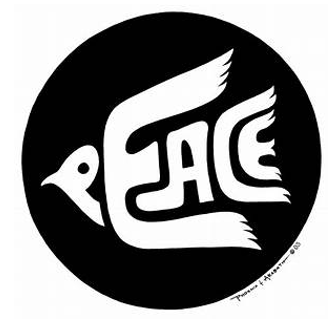Peace Circles at 1st U
What is a Circle?

Circles bring together people as equals for honest exchanges about the challenges each has encountered. As such, Circles are a time-worn peacemaking approach inspired by indigenous practice that is also consistent with modern desires to be democratic and inclusive. In so doing, the participants learn from the wisdom of other members of the circle.
- Participants sit in a circle, but without a table between them.
- Conversation is regulated by a talking piece, an object that is passed around the circle and grants the holder the sole right to speak.
- If a circle is held online there will be a predetermined order.
Circle processes are used in a broad range of contexts from crime victims to classrooms to the workplace. Circles are used for a variety of purposes such as talking, understanding, healing, sentencing, support, community-building, conflict, reintegration, and celebration.”
The Circle Process is designed to create a safe space for participants. It does so through these five structural elements:
- Guidelines for interaction are agreed upon by participants and are reached by consensus.
- Consensus encourages participants to speak truthfully, and requires an attitude of exploration rather than of conquering or persuading.
- Using a talking piece regulates the conversation and slows it down, offering an opportunity for reflection.
- Circles also have a keeper or facilitator. This individual is not intended to lead the group but works to maintain the collective space and stimulate reflection. The Circle Keeper will also participate.
- Ceremonies mark the opening and closing of the session to designate that this space is sacred.
Peace circles are one of several tools for restorative justice work. They provide a safe space for people to tell their stories on different subject matters. They are led by trained Circle Keepers. For those who may be interested in learning more about Peace Circles, The Little Book of Circle Processes by Kay Pranis is a great place to start.
Peace circles are not designed to offer clinical resources for help and healing, nor are we licensed therapists and social workers. The power of the circles is to tell your/our stories in a safe environment. The circles give us an opportunity to listen and learn from each other. The power of the circle is to foster a sense of community.
Regarding students:
The circles can possibly support a students’ healthy social and emotional development. They also create safe spaces for difficult conversations, deep emotions, and healing.
Circle Keepers at First U
A Brief History: In 2019, Rev. Jason Lydon (then Sabbatical Minister) introduced Peace Circles, a Restorative Justice model emphasizing healing and learning through a collective group process. The Peace Circles were well received, and many members participated in one of three Circles established at First U.
Five people were trained as Circle keepers with the Youth Institute via Precious Blood Ministerial group in November of 2019: Jim Proctor, Anita Orlikoff, Barbara Randolph, Rev. David Schwartz, and Rev. Monica Kling-Garcia. In November of 2021, Evelyn Johnson and Mary Clare Bietila completed their training as Circle keepers. Additionally, Cory Muldoon and Rev. Don Cameron are also experienced Circle keepers.
Since the fall of 2019, both before and during the various phases of the pandemic, First U Circle Keepers have offered, and continue to offer, Peace Circles, using a variety of themes such as “Belonging” or “Family Stories”, in face- to-face circles when health concerns allow or in successfully adapted online circles. In addition, we have also used a variation of the “Talking Circle” to conduct “Current Perspectives on Race & Racism” conversations and our conversations about the proposed 8th Principle. We continue to offer Peace Circles beginning August 27, 2022.
